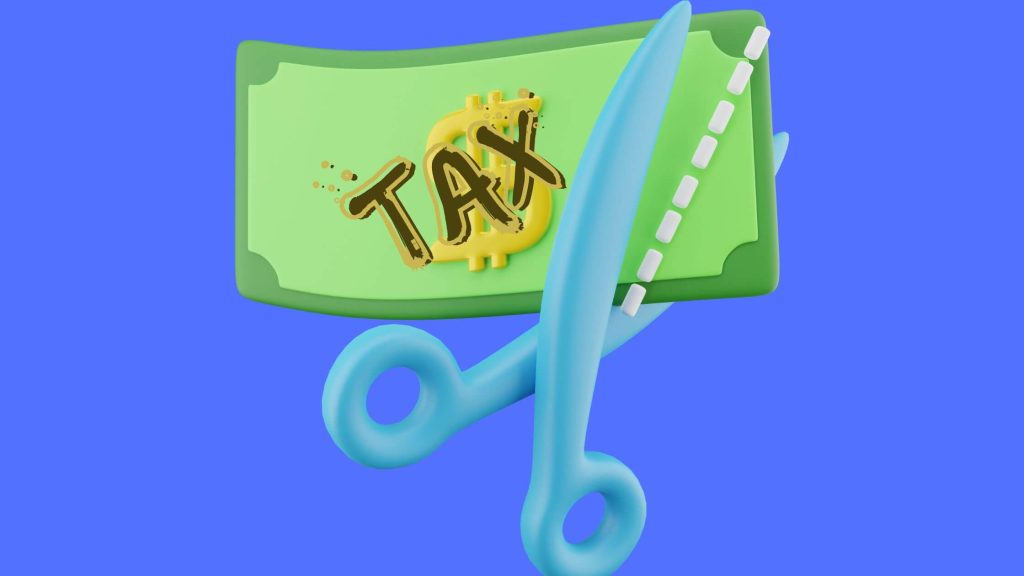What can be claimed as tax deduction in Kenya?
Intro
When it comes to filing taxes, many people are often on the lookout for ways to reduce their tax bill. While most are aware of the common tax deductible expenses such as charitable donations and mortgage interest, there are many other items that can be claimed as tax deductions. These lesser-known deductions can help you save even more money on your taxes. In this blog post, we will discuss the top 5 items that you may not have known were tax deductible expenses, and how you can benefit from claiming them on your taxes. So get ready to maximize your tax savings by learning about these often overlooked opportunities for claiming tax deductions.
Home Office Expenses – Work from Home Benefits
Many people nowadays have the luxury of working from home. Whether you\’re a freelancer, self-employed, or have an employer that allows remote work, you may be eligible for tax deductions related to your home office expenses. This is a valuable opportunity to save money on your taxes while enjoying the flexibility and convenience of working from home.
One of the most significant deductions available for individuals who work from home is the home office deduction. This allows you to deduct expenses directly related to the portion of your home that you use for your work. Eligible tax deductions may include a percentage of your rent or mortgage interest, utilities, property taxes, and even home repairs or improvements that benefit your home office.
To claim this deduction, you need to meet certain criteria. Your home office must be used exclusively and regularly for your business or work, and it should be your primary place of business. The KRA also requires that the space be used for administrative or managerial tasks, such as meeting with clients or conducting business-related activities.
Keep in mind that the size of your home office and the percentage of your home used for business will determine the amount of the deduction you can claim. It\’s crucial to keep detailed records of your expenses and have accurate measurements of your home office space to support your deduction.
Taking advantage of the home office expenses deduction can provide substantial tax savings, allowing you to keep more money in your pocket. So, if you work from home, don\’t forget to explore the eligible tax deductions and enjoy the benefits of working in the comfort of your own home while saving money on your taxes.
Health Insurance Premiums – Securing Your Health Can Save Your Wealth
Allowable deductions for health insurance premiums can be a valuable way to save money on your taxes while prioritizing your health. Many people are unaware that they can claim tax write-offs for their health insurance expenses. Deductions for individuals who pay their health insurance premiums out of pocket can provide significant tax savings.
Securing your health through adequate insurance coverage is essential, but it can also be costly. Fortunately, the Kenya Revenue Authority (KRA) recognizes the financial burden that health insurance premiums can impose, and they offer a tax break to help offset these expenses.
To qualify for the deduction, you must meet specific criteria set by the KRA. Generally, the deduction is available to self-employed individuals, as well as employees whose employer does not provide health insurance coverage. The deduction is also available for certain qualified long-term care insurance premiums.
Claiming the health insurance premium deduction can help alleviate the financial strain of medical expenses, while simultaneously ensuring you have adequate coverage. By taking advantage of this tax benefit, you can secure your health while also safeguarding your wealth.
Education Expenses – Investing in Your Future
Deductions for individuals who invest in their education can be a game-changer when it comes to reducing your tax bill. Whether you\’re pursuing a degree to further your career or taking courses to enhance your skills, you may be eligible for tax write-offs that can lighten the financial burden of education expenses.
One of the most valuable deductions available is the Lifetime Learning Credit. This credit allows individuals to claim a percentage of their education expenses, such as tuition, fees, and textbooks. Unlike some other tax credits, the Lifetime Learning Credit has no limit on the number of years you can claim it, making it an excellent option for lifelong learners.
Another deduction to consider is the student loan interest deduction. If you\’re paying interest on qualified student loans, you may be able to deduct up to a certain amount of that interest on your taxes. This can provide significant savings, especially for those with high student loan balances.
Additionally, if you\’re pursuing education for work-related purposes, you may be able to deduct expenses such as travel, lodging, and even the cost of workshops or seminars. These deductions can be particularly beneficial for individuals looking to enhance their skills and advance in their careers.
Investing in your education is a wise decision, and knowing that you can potentially save money on your taxes by claiming these education-related deductions makes it even more worthwhile. So take advantage of these tax benefits and continue investing in your future while maximizing your tax savings.
Charitable Contributions – Giving Can Be Receiving
When it comes to reducing your tax bill, one often overlooked opportunity is claiming tax deductions for charitable contributions. Giving back to your community not only makes a positive impact, but it can also benefit you financially.
Charitable contributions can take many forms, including cash donations, donations of property or assets, and even volunteer expenses. The KRA allows you to deduct these contributions from your taxable income, which can result in significant tax savings.
One of the key factors in maximizing your charitable deductions is keeping accurate records. Make sure to keep receipts or acknowledgments from the organizations you donate to, as well as any supporting documentation for non-cash contributions. This will help you substantiate your deductions in case of an audit.
It\’s important to note that not all charitable contributions are deductible. To qualify for a deduction, the organization must be recognized by the KRA as a qualified charitable organization. You can check the KRA website to ensure your chosen charity is eligible.
So why not give while receiving some tax benefits in return? By taking advantage of charitable contribution deductions, you can make a difference in your community while saving money on your taxes. It\’s a win-win situation that allows you to both give and receive.
Unreimbursed Employee Expenses – When Your Job Costs You
As if going to work every day isn\’t expensive enough, some jobs also require you to cover certain expenses out of your own pocket. Whether it\’s buying uniforms, paying for travel expenses, or investing in professional development, these unreimbursed employee expenses can add up quickly. However, the good news is that you may be able to claim these costs as tax deductions, providing some much-needed relief for your wallet.
To qualify for unreimbursed employee expense deductions, you need to meet certain criteria. First, the expenses must be necessary for your job and directly related to your work duties. Second, you cannot have been reimbursed for these expenses by your employer. Lastly, you can only deduct the portion of these expenses that exceeds 2% of your adjusted gross income.
Some common examples of unreimbursed employee expenses include work-related travel and transportation costs, job-related education and training expenses, professional organization memberships, and even the cost of maintaining a home office if you are required to work from home.
By claiming these unreimbursed employee expenses as tax deductions, you can turn the tables on the high costs of your job. Remember to keep detailed records and receipts to support your deductions and consult with a tax professional if you have any questions about eligibility or documentation requirements.
So, don\’t let your job cost you more than it already does. Take advantage of the opportunity to claim unreimbursed employee expense deductions and keep more of your hard-earned money in your pocket.


